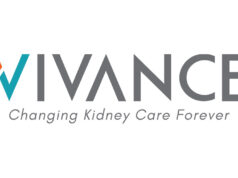
Ozempic (Novo Nordisk) is a once-daily injection with US Food and Drug Administration (FDA) approval for use as a preventative treatment for strokes and heart attacks in type 2 diabetic patients. Recently, however, the FLOW study has shown that the semaglutide-based drug may also have applications as a preventative treatment for chronic kidney disease (CKD).
The study had its preliminary stages ended early due to positive data showing signs that semaglutide would be effective when used to treat patients with both type 2 diabetes (T2D) and CKD—as confirmed by an independent data monitoring committee—but Novo Nordisk will remain blind to these results until the study officially concludes in August of 2024.
An article published in January 2023 in Nephrology Dialysis Transplantation by Peter Rossing (Complication Research, Steno Diabetes Center Copenhagen, Herlev, Denmark) et al outlined the rationale, design and baseline data of the FLOW trial. The authors stated that CKD is a common complication of T2D, and that glucagon-like peptide-1 receptor agonists (GLP-1RAs) can both “improve glycaemic control and lower body weight in people with T2D” and “reduce the risk of cardiovascular (CV) events in those with high CV risk.” According to Rossing et al, “GLP-1RAs might also have kidney-protective effects.”
One of the reasons that they decided to undertake this study was that, to date, “data have mostly been derived from CV outcome or glycaemic control trials featuring populations not selected for CKD and/or with kidney disease events as secondary outcomes”. What the FLOW study aims to do then, is look specifically at populations that have both T2D and CKD, so that definitive answers can be found regarding the effectiveness of semaglutide drugs—such as Ozempic—in preventing the progression of CKD.
FLOW is a randomised, double-blind, parallel-group, multinational, phase 3b trial comparing semaglutide with matched placebo. Both arms received the standards-of-care when the trial began in 2019, including renin-angiotensin-aldosterone system (RAAS) blockade for delaying the progression of CKD in participants with CKD and T2D.
The authors described the methods, stating that: “Participants were randomly assigned 1:1, using a central interactive web response system, to receive once-weekly subcutaneous injections of semaglutide 1mg or visually identical placebo, in addition to the maximum labelled or tolerated dose of a RAAS blocking agent (unless contraindicated or not tolerated).” They also stated that they permitted the use of SGLT2i, and that “randomisation was stratified by use at baseline”.
The researchers employed an eight-week dose escalation regimen at the start of treatment, with “dose escalation (as tolerated) from 0.25mg/week for four weeks to 0.5mg for four weeks, followed by a maintenance dose of 1mg/week throughout the remainder of the treatment period,” as they stated in their article. “Participants were trained in handling the pen injector when dispensed for the first time,” they continued, “and instructed to inject the trial product subcutaneous once-weekly in the abdomen or thigh. Training was repeated at week four, week 26 and yearly.” Rossing et al also stated that, if a participant were to experience unacceptable adverse events, extensions of dose escalation intervals, dose reductions and treatment pauses are allowed at the investigators’ discretion. They also permitted optimisation of glucose-lowering, CKD and CV disease standard-of-care medications, in accordance with local practice guidelines.
Once enrolment was completed, the authors had a total of 3,534 participants that had been randomised to treatment. These participants had a mean age of 66.6 years (standard deviation [SD] 9), 69.7% were male and 65.7% were white. The mean glycated haemoglobin (HbA1c) was 7.8% (SD 1.3) or 61.5mmol/mol (SD 14.1) and a high proportion of participants (68.6%) had a baseline HbA1c >7%. The mean baseline diabetes duration was 17.4 years (SD 9.3), body mass index was 32kg/m2 (SD 6.3) and systolic and diastolic blood pressure were 138.6mmHg (SD 15.8) and 76.4mmHg (SD 10), respectively.
Speaking to Renal Interventions, Saravanan Balamuthusamy (Tarrant Nephrology Associates, Fort Worth, USA) shared his views on the FLOW trial and the use of medications such as Ozempic for renal treatments. “Optimal glycaemic control is essential in preventing end organ damage in diabetes,” he stated, adding that “GLP-1RAs have been shown to improve [cardiovascular] outcomes in addition to improving glycaemic control in prior studies. Diabetes is the most common cause for kidney disease and hence decreasing the progression of kidney disease with GLP-1RAs in addition to standard of care could be a major milestone in disease mitigation.” His final thoughts were that “one can expect to see updates in recommendations and standards of care if the FLOW trial is a positive study demonstrating incremental benefits in reducing CKD progression in addition to RAASi and SGLT2 agents.”












